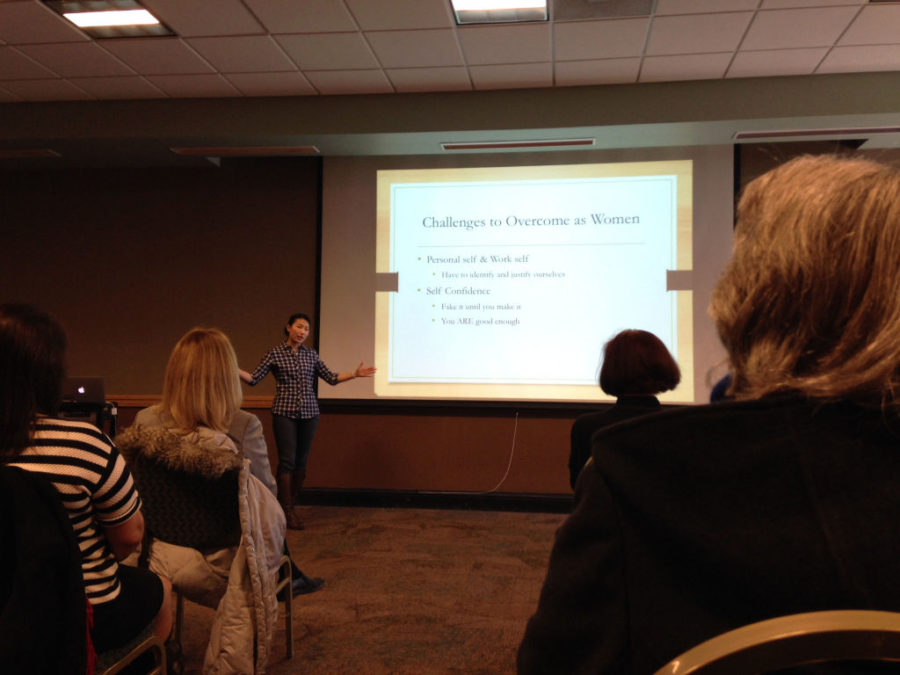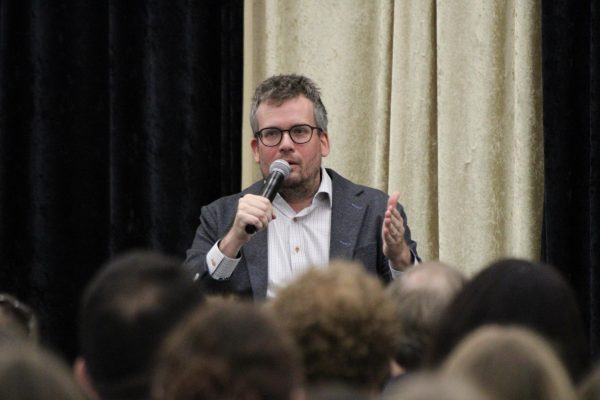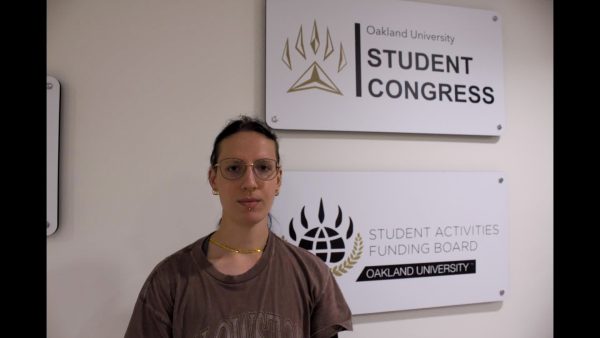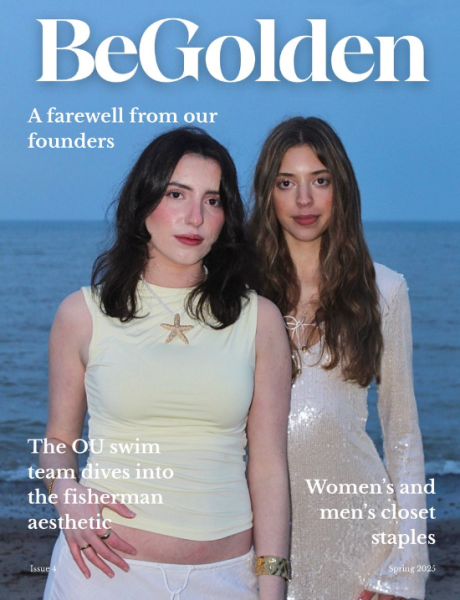Women in STEM: Balancing the equation
Dr. Wenjin Zhou was one of four women to participate in the Women in STEM panel on Monday, sharing her experience and advice for other women.
Working through the bias
Four OU women discussed the challenges they faced in their science, technology, engineering and math fields on Monday, March 9 as part of a panel hosted by the Women and Gender Studies Program and Women in Science and Engineering at OU (WISE@OU).
The panel opened with Dr. Kathleen Moore, professor emerita of chemistry, former associate dean of the College of Arts and Sciences and director of WISE@OU. She said STEM fields and research have become a national issue, with the greatest concern being about the workforce.
“We need to have a strong STEM workforce to deal with all of the complex issues that will make or break our future,” Moore said.
She has been retired for roughly two years but said she is still involved with the National Science Foundation Advance Program at OU, which is aimed at promoting gender equity in the academic workforce. She and NSF want to address and understand gender-based differences in research and education in STEM fields.
“How rooted are men versus women in their major as an undergraduate and their STEM occupation?”
The questions began almost 50 years ago, she said, when in her first semester a young man told her she was allowed to be excited about anything other than chemistry, as women weren’t good at science. That only further motivated her.
“I was also stunned to realize that I never had a female professor in any of my science or mathematics courses until I was a Ph.D. student, where I had one female professor in biology,” Moore said. “Clearly things have changed — but it’s still a challenge.”
Dr. Amy Banes-Berceli, associate professor of biological sciences, member of the Center for Biomedical Research and director of the biomedical sciences major, discussed studies on gender bias.
One study said women face four hurdles: they have to prove repeatedly that they are qualified and not just lucky; they are seen as too feminine or not feminine enough; they have to deal with the maternal wall of motherhood bias and being told they can’t be mothers and scientists simulaneously; and they face bias in terms of numbers.
“We haven’t made it through the ranks yet,” Banes-Berceli said.
Another study focused on hiring and revealed that hiring discrimination against females is from both males and other females.
“Women are seen as less competent even when we have the same qualifications as males,” Banes-Berceli said, saying that other studies on teaching evaluations showed men were called “brilliant” and “geniuses” much more often than women.
A lot of it is simply unintentional bias, she said, but the stereotypes exist. The best way to deal with this, she said, is to start with our education. We need to compile facts and data and conduct hard science studies, not just positive anecdotes, to show that women are just as talented as men.
“If we don’t understand what we’re up against it’s hard to deal with,” Banes-Berceli said.
Being yourself was a main theme for Dr. Wenjin Zhou, assistant professor of computer science and engineering.
Zhou, who is a member of the Center for Biomedical Research and faculty coordinator for OU’s women chapter of the Association for Computer Machinery, began by showing pictures of herself growing up in China. She said she was always surrounded by and interested in science and did not feel so much of that male-female bias that prevented her from pursuing it.
She discovered the joy in creating and finding new things through computers, and when she traveled to Iowa to get a degree in computer science, she discovered things were a little different for women in America.
“I didn’t realize I was such a big minority,” until one day she realized that out of the roughly 40 students in her senior computer science classroom, she was one of two women.
It didn’t stop her, however. She said she had a lot of encouragement and support from teachers and took internships that helped her figure out which way she wanted to go. She went on to teach and got her Ph.D. in computer science at Brown University, then came to OU in 2012.
There are many things that have inspired her, she said, but the main things she took away and wanted to share with fellow women were to never give up, to start small, to get feedback and listen to what others say and to stay determined no matter what.
Her take home message: “Never give up and be your best self.”
Read next: Paving their own paths — a look at the next generation of women in STEM











